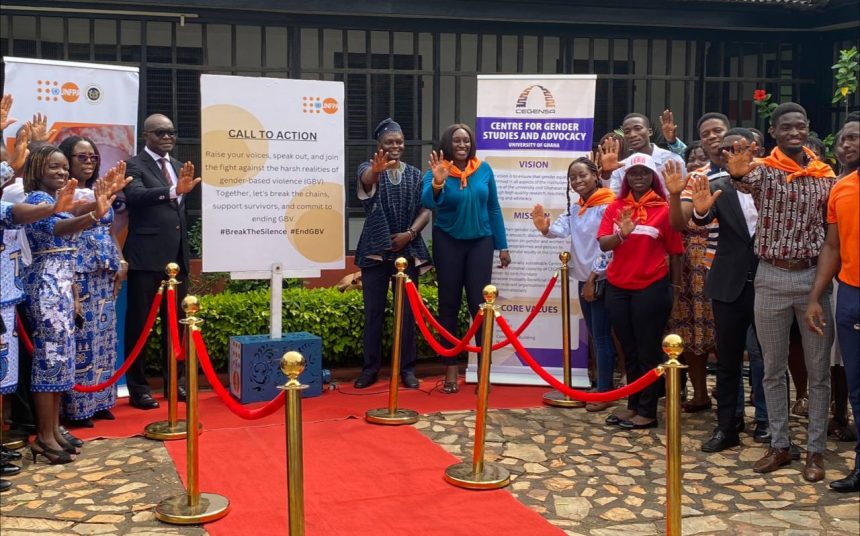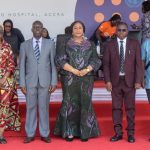In a pioneering effort to spotlight the often-overlooked facets of gender-based violence, the United Nations Population Fund (UNFPA) Ghana, in collaboration with the Ministry of Gender, Children, and Social Protection, has launched the innovative “16 Shades of Abuse” campaign.
As part of the annual “16 Days of Activism Against Gender-Based Violence,” this campaign harnessed the evocative power of photography to visually narrate various forms of abuse. The initiative sought to bring attention to the nuances of abuse that frequently escape mainstream discourse, offering a creative and compelling approach to addressing this critical societal issue.
The campaign, which run from November 25th to December 10th, harnessed the creativity of young photographers and creatives in Ghana. Titled “16 Shades of Abuse,” the initiative invited photographers to visually capture the brilliance of empowerment or the dimness of abuse through compelling photos. This unique approach aimed to shed light on different forms of violence, including economic, verbal, psychological, emotional, and sexual abuse.
UNFPA called for submissions from photographers across Ghana, resulting in a selection of the best 16 photos. The images covered a spectrum of abuses, ensuring that each form receives equal attention and recognition. The campaign strived to create awareness and a unified voice against gender-based violence by involving diverse stakeholders and relevant institutions.
The 12th photo of the series was recently unveiled at the Center for Gender Studies and Advocacy (CEGENSA) at the University of Ghana. The unveiling ceremony marked a pivotal moment in the campaign’s journey, emphasizing collaboration between UNFPA, the gender team, and academic institutions committed to addressing gender-based violence.
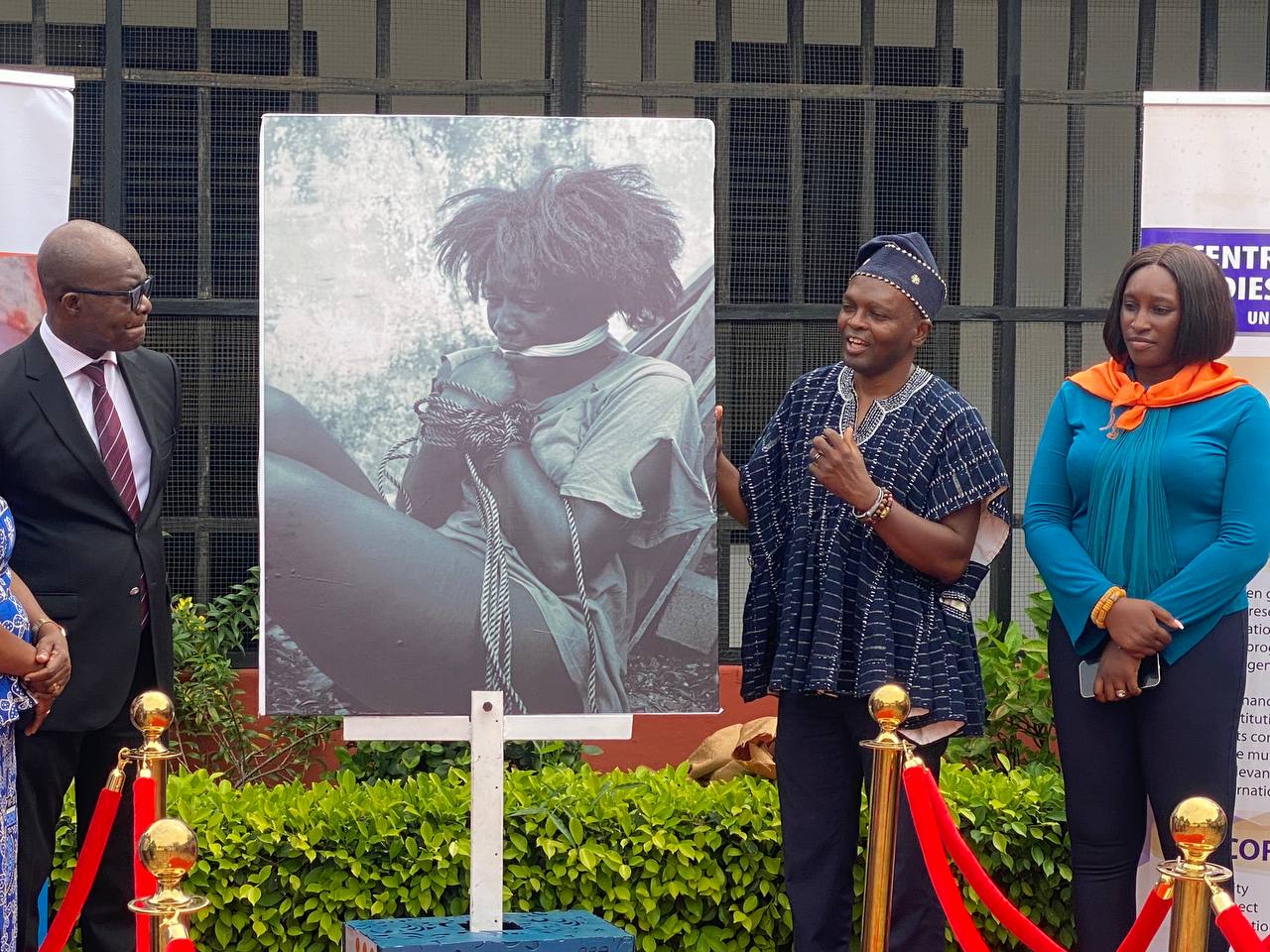
Speaking to UniversNews in a fervent plea against the pervasive issue of gender-based violence, the Provost of the College of Humanities at the University of Ghana, Professor Daniel Frimpong Ofori, emphasized the urgency to eradicate violence, particularly targeting adolescents, teenagers, and young women.
Prof. Frimpong Ofori pointed out that, with females constituting the majority of the population, the impact of gender-based violence reverberates through countless families and relationships. The commemorative occasion echoed a call for sustained activism, education, and collaboration to eradicate violence from the fabric of society.
“Violence is apparent. Violence against anybody is not something that we should tolerate, but particularly violence against adolescents, teenagers, and young ladies is something that we should completely stamp out of our society. Females constitute the majority in our country. Everybody is related to some female, such as a mother, auntie, daughter, friend, work colleague, etc.
So it is unconscionable that we should stand as counts and let this sort of thing be perpetuated on the majority of the people in our society. So it’s a very important occasion that we are commemorating today. I think it’s important that UNFPA is leading the way to doing that. So they should keep it up. Well, CEGENSA is advocating against it and hosting UNFPA today is a clear sign of a commitment to doing it,” he said to UniversNews.
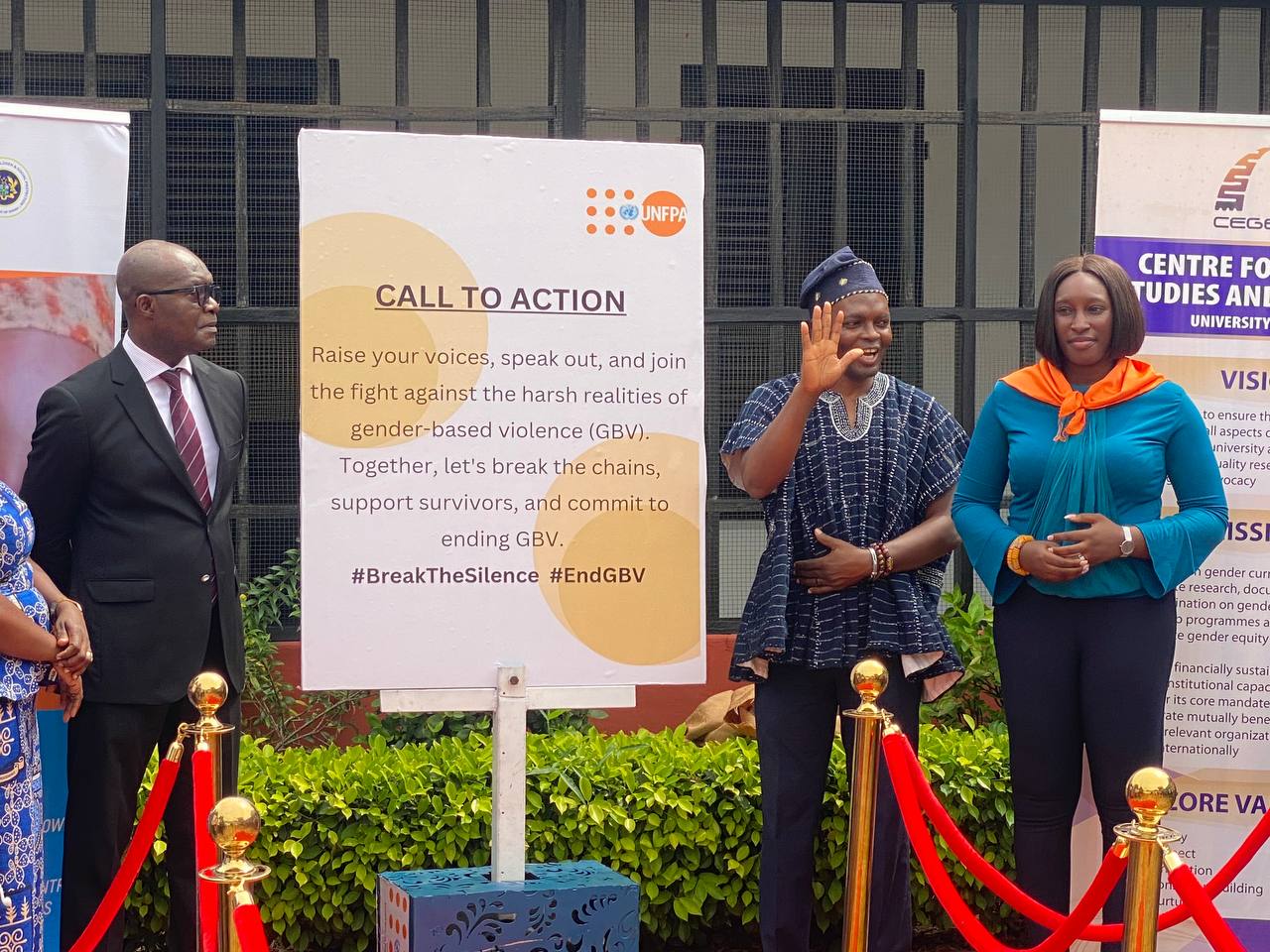
Also speaking to UniversNews, Program Officer for Gender at UNFPA Ghana, Faisal Bawa, shed light on the prevailing challenges surrounding gender-based violence in the nation. He emphasized the urgent need for accurate data and a comprehensive support system to address the multifaceted issue.
“If you take the cloth from the data, it’s the service delivery, how women and abused persons receive support, which is very important. So we need to look at support system that is available nationwide, even within the institution, within the University of Ghana.
Issues of abuse, how is it being handled, what is at the avenue, are people able to report, is there a policy on retaliation, and if somebody reports what happened, will the person be protected from the retaliation policy so that people are encouraged more to do so?,” Mr. Bawa said.
Bawa pointed out the data discrepancies, highlighting that while Ghana relies on the 2016 study by the country’s statistics, the most recent information suggests that approximately 27% of women have experienced various forms of violence.
Notably, he expressed concerns about adolescent pregnancy, revealing that over 100,000 cases are recorded annually, with 10,000 involving girls below the age of 14.
“Data is one, but the other is what support system is available for survivors, and that is where we need to move towards,” remarked Bawa, stressing the importance of a nationwide support system.
Faisal Bawa delved into systemic issues, focusing on cultural practices, socialization, and prevention strategies. He urged the engagement of men and boys, advocating for positive masculinity, effective communication, and empathy.
He also emphasized the role of education in reshaping societal norms and eradicating negative cultural practices.
“We need to look at our culture, our society, our socialization, and our school system. What are we teaching our children? To be able to ensure that we prevent, which is very important,” Bawa asserted, calling for a holistic approach to combating gender-based violence.
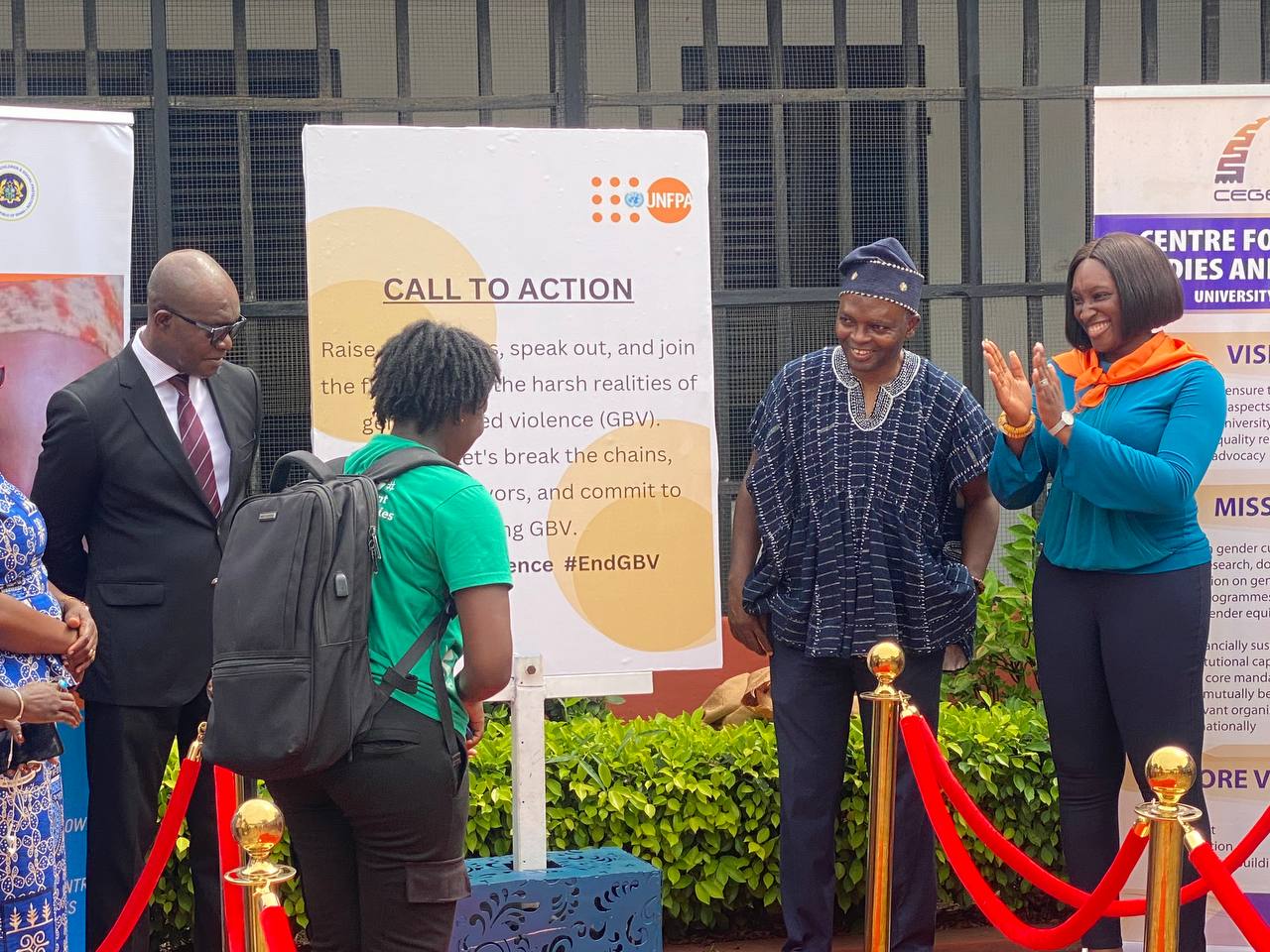
Director for Gender Studies and Advocacy at CEGENSA, Dr. Deborah Atoborah, also commended UNFPA’s ’16 Shades of Abuse’ initiative for its impactful use of visuals to depict the harsh reality of sexual and gender-based violence.
Expressing satisfaction with the authenticity of the visuals, Dr. Atoborah lauded the campaign as a crucial step in raising awareness and accelerating efforts to combat the prevailing issue.
“It’s good we are using pictures to highlight what it looks like to be a victim of sexual and gender-based violence for people to appreciate what it looks like, and these visuals are authentic, which makes it even more relatable for people to appreciate what violence looks like,” remarked Dr. Atoborah.
The use of visuals, according to her, provides a powerful means to convey the gravity of the issue, making it more relatable and fostering a deeper understanding among the audience.
Expressing her happiness for the UNFPA’s initiative, Dr. Atoborah acknowledged the campaign’s dissemination through various media channels, including social media. Recognizing the ongoing prevalence of violence, she underscored the need to intensify efforts and accelerate work in combating this deeply rooted societal issue.
“I am happy for this initiative by UNFPA to do this campaign, and I know the campaign is going on social media and other forms of media because we cannot speak enough about violence. We still need to accelerate our work around violence because it’s still very prevalent,” she said to UniversNews.
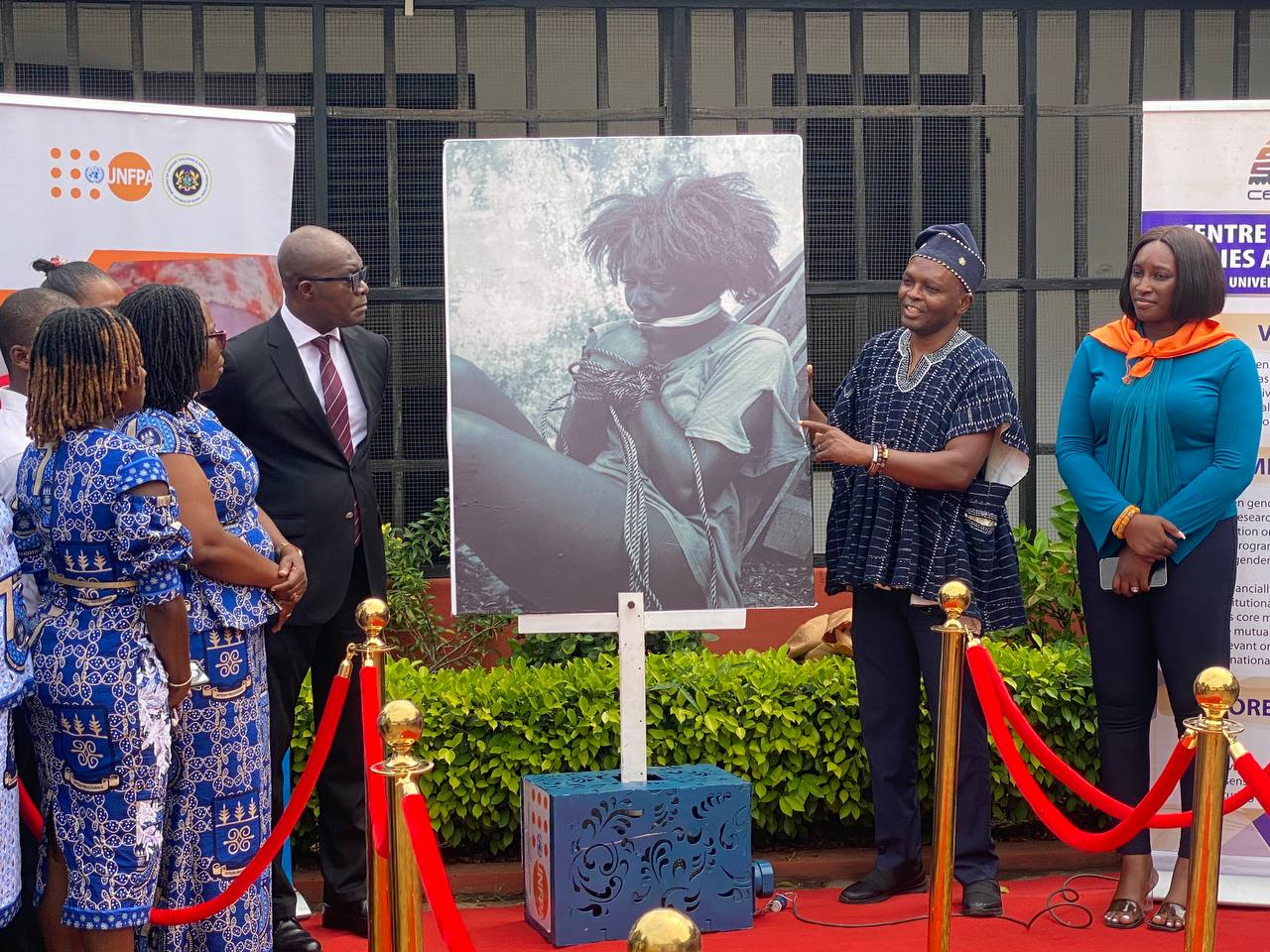
The campaign has reached various significant locations, including the Ghana National Mosque, Movenpick Ambassador Hotel, the British Council, the British High Commission, and many others. Each unveiling was a strategic effort to involve diverse stakeholders and create widespread awareness about gender-based violence.
According to Team Lead for the Campaign, Benedicta Sarfoa Asamoah, the concluding event on the 16th day will see all 16 photographs exhibited at a program in Accra, bringing together stakeholders, activists, and the general public.
“We are hoping to make this bigger in a few years to come. This is just the beginning of the creative and innovative idea we have brought to bear. Now that we know it has been very successful, we’re hoping to make it bigger and involve all the regions in Ghana,” she said.
Beyond just showcasing impactful visuals, UNFPA is dedicated to empowering the photographers behind these powerful narratives. A masterclass is planned to provide further support and encouragement to these artists, recognizing their role in championing and fighting against gender-based violence.
“We are here not just to use their piece but also to enable them so that they can do better at every point. If every time we have photos that speak against gender-based violence or photos that bring out the brilliance of empowerment, it will create some form of awareness.” Benedicta Asamoah stressed.
The ’16 Shades of Abuse’ campaign stands as a testament to UNFPA’s commitment to fostering creativity as a force for change and a means to dismantle the structures of gender-based violence in society.
–
Story by: Kelly Adjetey Boye | univers.ug.edu.gh

